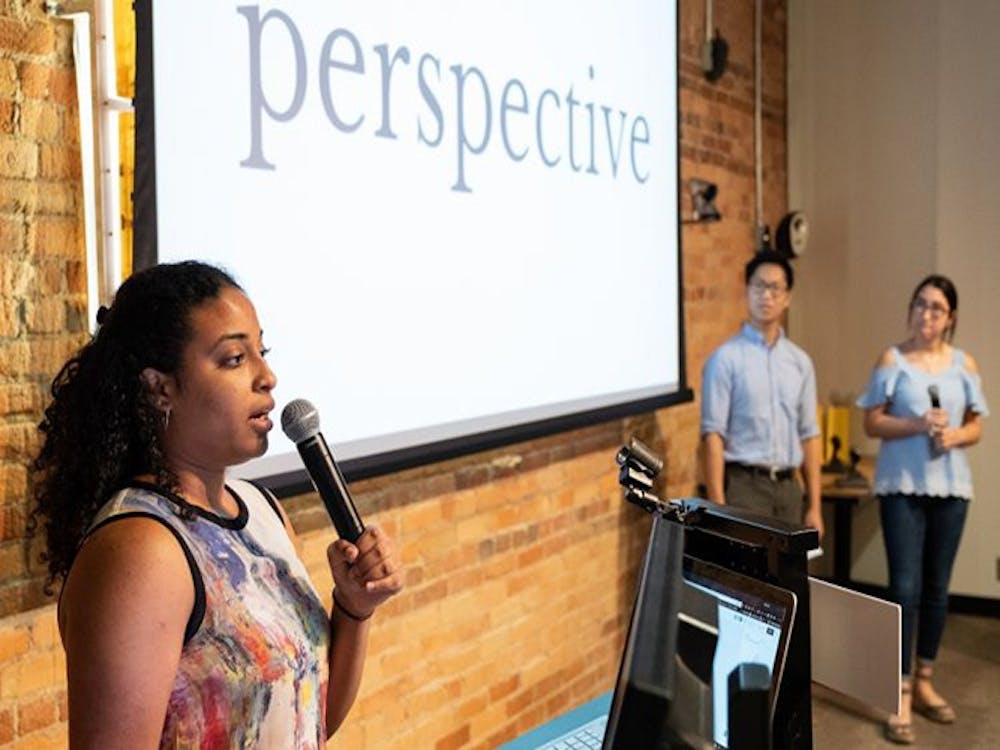The coronavirus outbreak has shuttered many summer projects and programs, but the interdisciplinary narratives of Duke’s Story+ will continue to be told in spite of — and even because of — the current circumstances.
“What the pandemic has made possible for all of our student researchers is a very recent, direct experience of their own digital and interface processes,” Jules Odendahl-James, wrote.
Odendahl-James, along with Amanda Starling Gould, is Co-Director of Story+, a six-week summer program through the John Hope Franklin Humanities Institute that offers students the opportunity to develop and execute humanities research projects under a sponsor and a graduate student mentor. While the acquisition and honing of research skills are an obvious focus of the intensive summer program, Story+ sets itself apart from similar initiatives by emphasizing storytelling as a crucial tool in the creation and presentation of these projects.
Many past Story+ projects have utilized digital archives and mediums to assemble and share their efforts, which Odendahl-James believes will provide this year’s cohort with a slight advantage as technology has become unprecedentedly efficient, flexible and sophisticated in the wake of the outbreak.
“As students (having completed coursework online for eight weeks or so) and as users (engaging streaming services, websites, podcasts, newsletters, Zoom), I think they will bring some wonderful insights to their work from these circumstances.”
This year, instead of taking place on-campus or in specified project sites, Story+ will instead be delivered remotely. Although the program has been trimmed from a full-time to a part-time commitment to accommodate students’ diverse living conditions, Odendahl-James emphasized in an article for the John Hope Franklin Humanities Institute website that the themes and objectives of Story+ will remain unaltered.
“The goal is to maintain, as much as possible, a focus on process, depth and taking one’s time to let research evolve. These are values at the core of Story+.”
However, this dedication to maintaining the program’s integrity does not preclude it from accepting and, in some cases, embracing the impact of the coronavirus on society. In addition to the anticipated slate of projects — ranging in topic from policy responses to coal-mining disasters to documentary sculpture — two new ventures have been added in response to the pandemic. The first is a digital ethnomusicology project that promises to investigate the DJ community and how they have adapted to cancelled performances and closed venues by turning to streaming platforms and fostering a novel environment where music, technology and socialization collide. The second is a comparative study of Durham’s response to the COVID-19 outbreak and the 1918 flu pandemic to assess how much has changed over the course of a century.
Odendahl-James spoke optimistically about these new projects, perceiving them as positive outcomes of the outbreak and its consequences.
“There is one new project [that] came to us as an entry to replace a team that decided not to shift to the virtual form that looks at DJs globally and how their work, especially live streaming is affected by the pandemic. This very cool digital ethnographic project was introducing its work in our bootcamp, and we found another student who is a DJ (who has had streaming gigs) and might become part of the study!” Odendahl-James wrote. “Another team, also an adapted project, is comparing Durham’s response to the pandemic today to its response in 1918, and during team leaders’ introductions we found that the team looking at photographs and caregiver stories at a Raleigh early 20th century asylum experienced that 1918 pandemic. Hopefully there will be a point of connection to explore there.”
While the coronavirus pandemic and its resulting cancellations have been undeniably difficult for many, Story+’s resilience and devotion to delivering a unique program that actively couples conventional research with modern modes of storytelling and digital archivation underscores the necessity of telling and preserving stories during the best and worst of times. As Gould says in her approach to the program — “community over content.” No matter how the redesigned project unfolds or how the research goes over an uncertain summer, the stories to come out of the program will doubtlessly be more than worth sharing.
Get The Chronicle straight to your inbox
Sign up for our weekly newsletter. Cancel at any time.

